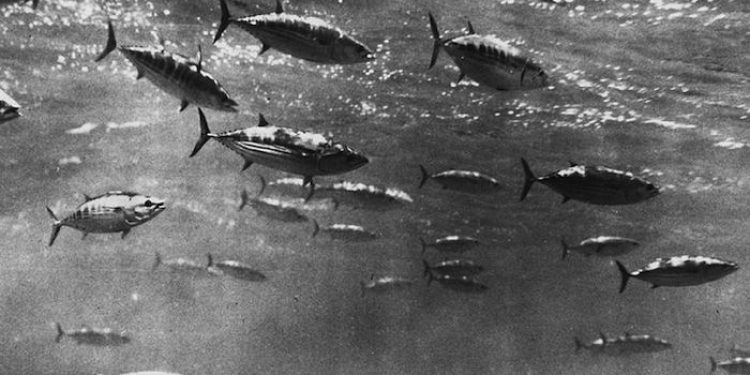Following an objection in the reassessment of the PNA skipjack tuna fishery, an independent adjudicator has confirmed the third party conformity assessment body (CAB) decision that the PNA skipjack tuna fishery continues to meet the MSC’s Standard for sustainable fishing. Of 24 challenges to individual scoring issues within the objection, none were upheld.
The objector, International Pole and Line Foundation, raised a number of concerns, claiming that shark finning was systematically taking place within the fishery. It also claimed that the fishery was having a significant impact on silky sharks. The independent adjudicator has dismissed both of these claims.
The MSC banned the practice of shark finning from the programme from 2013. The PNA governments also implemented their own ban on shark finning, and the practice of shark finning has been virtually eliminated in PNA waters over the past few years. Shark finning now only happens in isolated cases and prosecutions have been brought against these occurrences with fines being levied on the perpetrators. As part of the auditor’s recommendations, the PNA will need to continue to demonstrate that prosecutions and enforcement actions are maintained within the fishery.
‘This highlights the strength of the MSC process. As a result of this objection, more information is now in the public domain about the PNA fishery, adding to the information in the published assessment report, and improving the transparency of the fishery’s management,’ commented Dr David Agnew, MSC science and standards director.
‘This confirms that the PNA skipjack tuna fishery is a sustainable and well-managed fishery that has made considerable improvements over the course of its first MSC certificate. People buying MSC labelled PNA tuna can be confident that their purchase is making a positive difference to the sustainability of our oceans.’
Claims dismissed
The independent adjudicator considered and rejected the key arguments made by the International Pole and Line Foundation that the fishery is not sustainable.
In his response, the Independent Adjudicator noted: …the assessment process under the FCR is a common sense method to reduce risks to the marine environment. PNA with their 100% observer team and strategies have significantly reduced shark finning to a very limited extent… I accept the CAB’s submission that any fishery would be vulnerable to failing the certification process if only one or two “saboteurs” deliberately finned sharks.
If the Objector were correct in their interpretation, then one single incident of shark finning would make a fishery ineligible for certification. Such an approach is unrealistic, which is why PS 2.2.2 focuses on management strategies to reduce risk. The MSC standard could be rendered obsolete by such an absolutist position, resulting in many fisheries failing, greatly undermining the implementation of the MSC standards, which contribute significantly to the aims of sustainability and environmental protection. I further agree with the CAB that the Objector’s interpretation would result in there being a perverse incentive for fisheries not to monitor the fishing activities.”
…I further agree with the CAB that as silky shark comprises 0.05% of the PNA fishery and the entire WCPO un-associated purse seine fishery comprises 3% of the overall silky shark, the CAB’s position is justified and not arbitrary or unreasonable when concluding the Fishery has no significant detrimental direct effect on silky shark.









